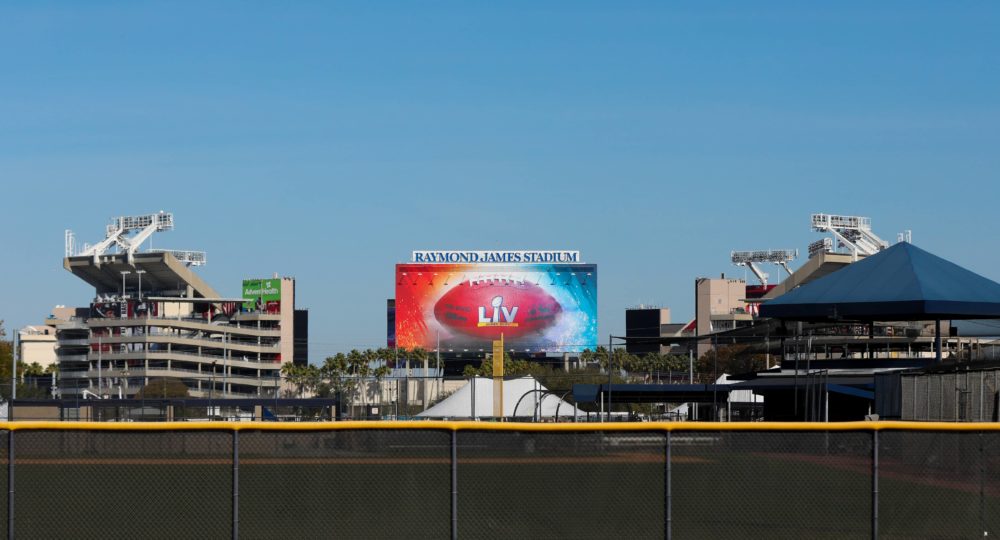
A COVID-filled Season
The NFL, alongside every other professional sport, tried to push on and play despite a raging pandemic striking across the country. The league scheduled midweek affairs to accommodate infection clusters, added additional COVID-19 protocols in terms of social distancing and mask-wearing and created significant penalties for any team that violated the new rules.
Yet this season is still defined by coronavirus with its residue likely left on the Lombardi trophy when it’s finally claimed Feb. 7. Teams have missed significant practice time, players are out for pivotal games due to the virus and scheduling has changed the landscape of game preparation. Most notably, the San Francisco 49ers couldn’t play their games at home in Santa Clara as the season came to a close due to county regulations banning professional sporting events. The team’s home games were moved to the Arizona Cardinals’ stadium.
Have all these regulations changed the outcome in crowning an eventual champion? Will the NFL community place an asterisk on this season? This will be argued on barstools for years to come, creating one of the most controversial and bizarre seasons to date.
 By the Numbers
By the Numbers
- $5,706 is the average cost of a ticket to the past five Super Bowls.
- The average cost for a 30-second commercial is $5.6 million during the Super Bowl.
- 4 billion chicken wings will be eaten during the Super Bowl weekend, plus at least 11 .2 million pounds of chips, 8 million pounds of guacamole and 10 million pounds of ribs.
- 1 in 2 People would sacrifice their vacation days for one year to watch their team win the Super Bowl. More than 1 in 3 would give up their annual bonus.
- 7 million American adults are projected to bet on the Super Bowl, legally wagering a record-breaking $325 million.
The amount the NFL pays for each ring is $5,000 and 150 are made for the winning franchise.
Fast Facts
First Super Bowl: The inaugural championship game was between the NFL (Green Bay Packers) and AFL (Kansas City Chiefs) champions at Memorial Coliseum in Los Angeles on Jan. 15, 1967. Green Bay won 35-10 with 61,946 people in attendance. Bart Starr, the quarterback for Green Bay, was named the MVP.
Lowest winning point total: New England Patriots 13, Los Angeles Rams 3 —Super Bowl LIII, at Mercedes Benz Stadium in Atlanta.
Highest winning point total: San Francisco 49ers 55, Denver Broncos 10 — Super Bowl XXIV, at the Louisiana Superdome in New Orleans. This was also the largest margin of victory to date.
Most Super Bowls played: New England Patriots, 11
Most Super Bowl Wins: The New England Patriots and the Pittsburgh Steelers are tied with 6.
Most Losses: Denver Broncos and New England Patriots are tied with 5.
How to Host the Big Game
 How does a city get the chance to host the big game? It’s all documented in a 153-page confidential packet the league distributes called the “NFL’s Host City Specifications and Requirements.” Here are some of the most outlandish requirements.
How does a city get the chance to host the big game? It’s all documented in a 153-page confidential packet the league distributes called the “NFL’s Host City Specifications and Requirements.” Here are some of the most outlandish requirements.
- The city must have three, “top quality” 18-hole golf courses the NFL can use on Super Bowl weekend alongside two elite bowling alleys.
- The NFL requires 110 apartments for its employees to use for 30-40 days before the game. The apartments must be within 20-minutes of the stadium with Wi-Fi, full kitchens, washer and dryer facilities, televisions in the bedrooms and a workout facility on the property.
- The NFL also requires 20 billboards for marketing, 35,000 parking spots, a ticket counterfeiting task force and police escorts at no cost.
- The NFL inspects prospective cities with a 180-person team that is sent 16 months prior to the big game.




